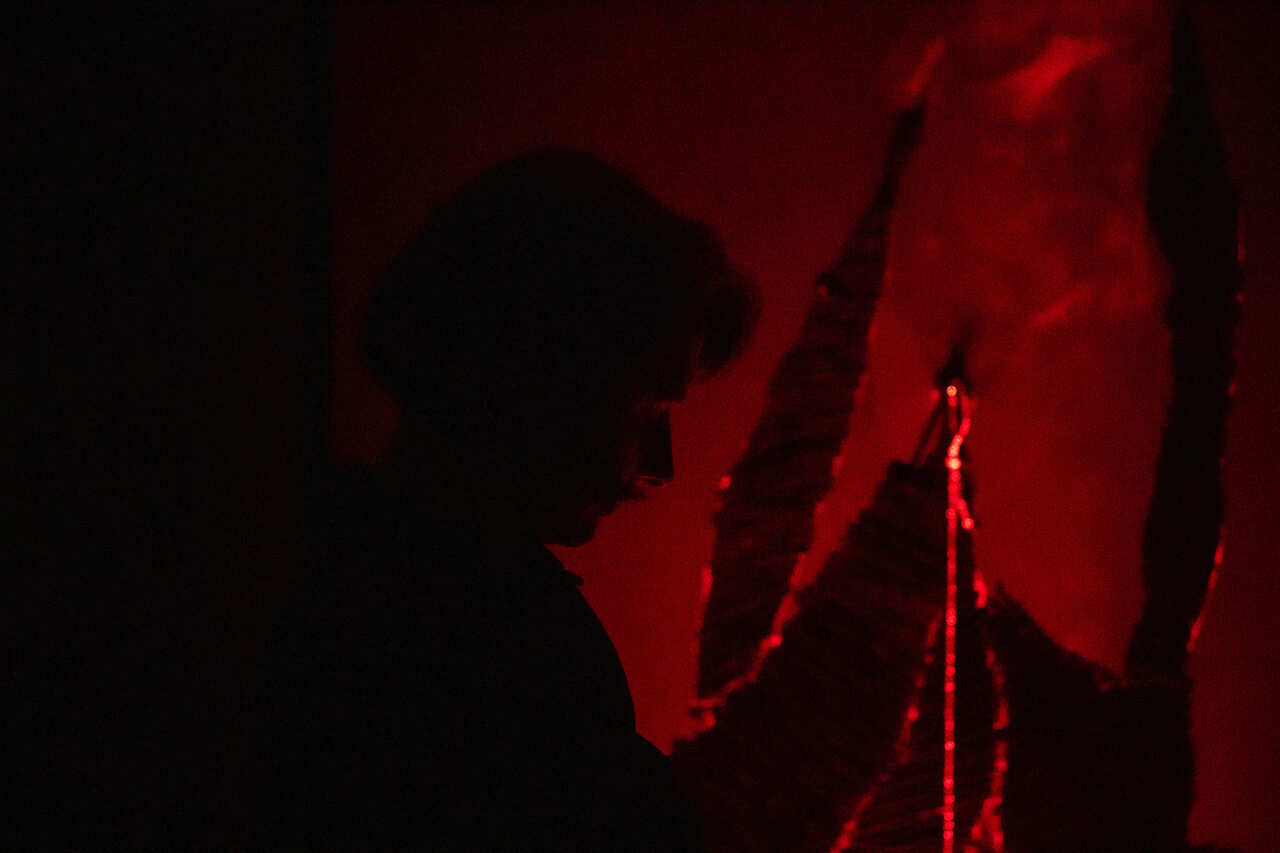For a three months, Hanna Palei from Belarus was a part of Malý Berlín. Read about what she worked on during her time here
Few days ago we said goodbye to another resident on Malý Berlín. This time it was Hanna – cultural manager from Belarus. We talked with her about her work, last exhibition at Čepan Gallery and also about her plans after the residency.
I usually ask people about their projects and how they liked their residence. But first of all, I want to ask You – what will You miss the most, when You leave?
The opportunity to work freely, calmly in a supportive atmosphere on my project.
What did You miss the most from Belarus here, during your days in Trnava?
I would say that I generally miss and experience great pain, tragedy and loss from the loss of my project, which I have been developing for the last 4 years in Belarus since 2018. This is an independent cultural space pershykrok.by which united many art enthusiasts from the regions of Belarus and helped implement cultural and art projects. It has been a space for discussion, for lectures and for independent art projects, and in recent years a space of support for the local community.
The exhibition in Čepan Gallery is still actual now. Can You describe more about your work with artist Emília Rigová? What did You do for “zredukovaná”?
This is a very symbolic work for me. My acquaintance with the contemporary art scene in Slovakia started with visiting the exhibition Untitled, which Emilia presented at the Synagogue in Trnava. Then I was amazed at the ways the artist works with the theme of Roma culture in Slovak society. And it so happened that my last week in Slovakia we jointly opened the exhibition “zredukovaná”.
At the exhibition I act as a curator and author of texts. During the residency, I studied a lot of the artist’s practices, her work with memory, with the theme of the Holocaust Roma. Working with memory has a special personal meaning for me, because in my country history is being rewritten right now and what was historically true for another three years becomes prohibited. People are recognized as enemies for having a different political view.
Therefore, I have deep respect for the topic of historical memory and rethinking and the work that Emilia has been doing in her artistic practice for many years. After all, without understanding and forgetting the past, it is impossible to move into a better future.
How did You like this experience – I am talking about work with Emília but also the topic of exhibition.
Firstly, I was lucky, thanks to Emilia, to become part of the performance as a viewer. And it’s a really impressive and important experience for a curator to be part of the process.
Secondly, but more important for me, was the topic that I encountered in the process of observation and preparation for the text. It seems to me that this state of the borderland, which I caught, and this is my personal state now. Now I have a feeling of uncertainty and borderline and I wonder where I am now, who I am in a new space and country. Such a process of searching for identity.
Working on this exhibition was not the only thing you did in Malý Berlín. Can You please tell more about your work here?
While working in Maly Berlin I had the opportunity to work on the development of my project. Now with my team I am developing a CultTech startup in the field of education maramora.co – a platform for the education of people not involved in art, with online courses, guides and texts for everyone who is interested in art as a means of overcoming trauma and crisis situations.
Thanks to the self-directed residency, I had the opportunity to choose the most relevant program for my professional development right now: work actively on a fundraising company for the project, as well as develop partnerships with cultural institutions in Slovakia. For example, together with the maramora team and Maly Berlin we have prepared a guide to Slovak independent art spaces for international collaborations:
https://www.maramora.co/media/independent-art-spaces-for-international-collaborations-in-slovakia
And I hope for further partnership with Malý Berlín.
What were the main differences in working in the cultural sphere in your home country and now, in Slovakia?
The opportunity for professional development and the opportunity to work at all and continue my practice is a great joy for me and I would say a privilege right now compared to Belarus. While working in Maly Berlin, I also noted the supportive atmosphere and comfortable conditions and opportunities for professional growth for me as a cultural manager and curator.
What did you find the most interesting during your residence? I am asking about Malý Berlín but also about life in Trnava and Slovakia.
This is my second time visiting Slovakia and for the second time I am surprised that any small town has an independent cultural space, gallery and active cultural life. This is a big revelation and a pleasant surprise for me.
During my visit to Slovakia, I was able to visit Zilina, Pestany, Banska Bystrica, Trnava and Bratislava, Novy Zamky and I met very pleasant and inspiring practices and places that are also open to international collaboration and ready to cooperate. For me, this is the most interesting thing I observed.
Profile:
Hanna Palei (b.1987) is Belarusian cultural manager and curator. She studied European Cultural Foundation program (art management). Her curated projects are about local identity, feminism and living ordinary life in Belarusian context. She is the founder of cultural and educational space in Belarus (pershykrok.by), established in 2018 as a local art actors network for studies and practice of new media. Among her curatorial projects: International festival “Month of Photography” (regional program, theme: Survival, 2020), Series of audio-visual female portraits “Authentic” (2021), Educational art program “Palesse in Focus” (2022).
Photo: Petra K. Adamková
